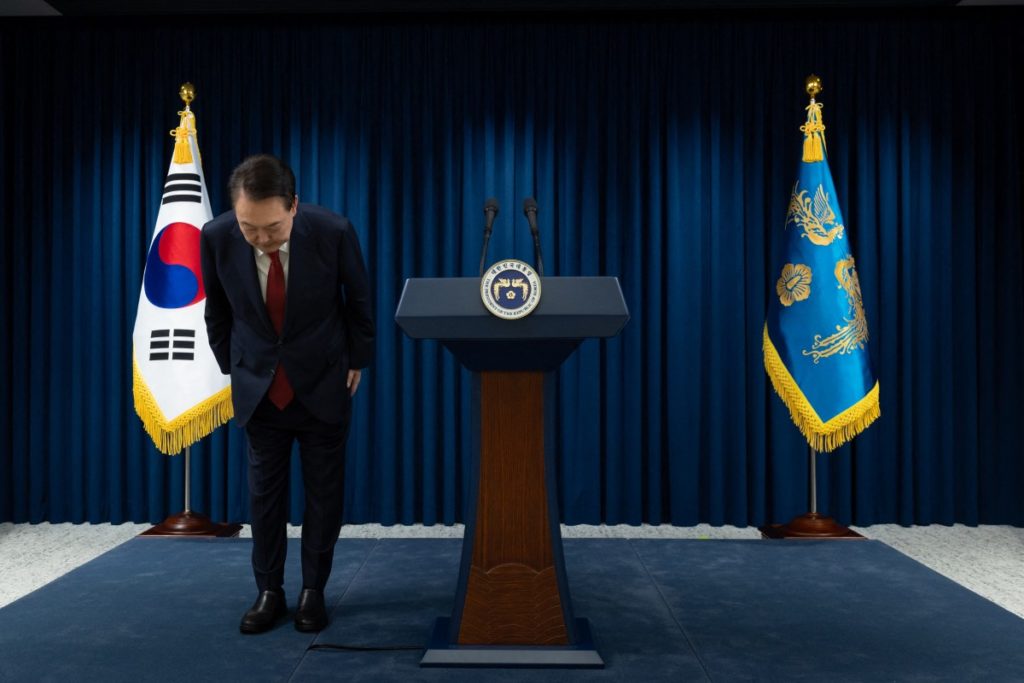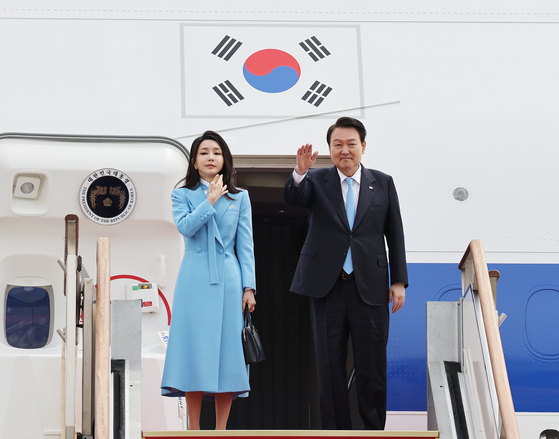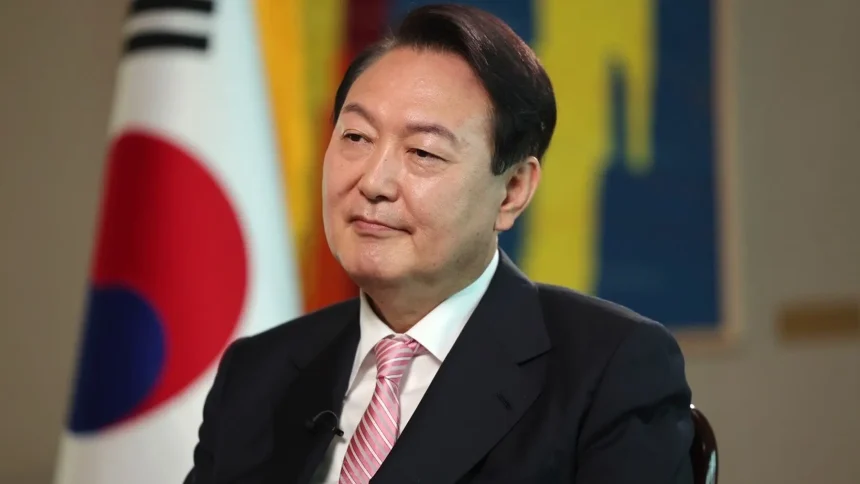South Korea’s National Assembly has voted to impeach President Yoon Suk Yeol following his controversial decision to declare martial law earlier this month. The move, which has plunged the nation into a constitutional and political crisis, has also raised pressing questions about the state of democracy in one of Asia’s most vibrant political landscapes.
On December 3, President Yoon made the unprecedented announcement of martial law, accusing opposition lawmakers of intentionally paralyzing the government. The declaration was met with immediate and widespread outrage.
Soldiers were deployed to the National Assembly under orders to forcibly remove lawmakers, an extraordinary and alarming act in a democratic society. According to reports, the military’s intervention aimed to prevent legislators from gathering the 150 votes needed to overturn the martial law order.

Despite the president’s actions, the Assembly successfully convened and swiftly voted to rescind the martial law, rendering it void within hours.
However, the damage had already been done. Yoon’s decision ignited a fierce backlash, both from opposition leaders and the South Korean public, who viewed the move as an assault on democracy and an abuse of executive power.
READ MORE: China’s CNOOC Sells U.S. Oil and Gas Assets to British Group INEOS
The impeachment motion was put to a vote on Thursday and streamed live to a tense and attentive nation. In the 300-member parliament, 204 lawmakers voted in favor of impeachment, surpassing the required two-thirds majority, while 85 voted against the motion.
Notably, some members of Yoon’s conservative People Power Party joined the opposition to back the impeachment, reflecting growing dissent within his own political ranks.

Under South Korea’s constitution, President Yoon’s powers are now suspended, and Prime Minister Han Duck-soo will serve as interim leader while the Constitutional Court reviews the impeachment decision. The court has up to six months to determine whether to uphold or overturn the vote, a process that will be closely watched both domestically and internationally.
READ ALSO: Remove TikTok from Apple Stores: US tells Apple and Google
This is only the second time in South Korea’s history that a sitting president has been impeached. The first instance occurred in 2016 when Park Geun-hye faced impeachment over corruption charges, ultimately leading to her removal from office.
The impeachment has drawn widespread support from the opposition and civil society. Park Chan-dae, the floor leader of the Democratic Party, declared the outcome “a victory for the South Korean people and for democracy.”
Public protests, which erupted immediately after the martial law announcement, have intensified, with many citizens calling for Yoon’s permanent removal and accountability for his actions.

Yoon’s declaration of martial law has also triggered criminal investigations, with legal experts suggesting that the deployment of soldiers to the Assembly could constitute a violation of constitutional principles and laws protecting democratic governance.
Meanwhile, President Yoon has remained largely silent since the vote. Reports indicate that he was watching the proceedings from his official residence in Seoul, but he has yet to issue a public statement.

